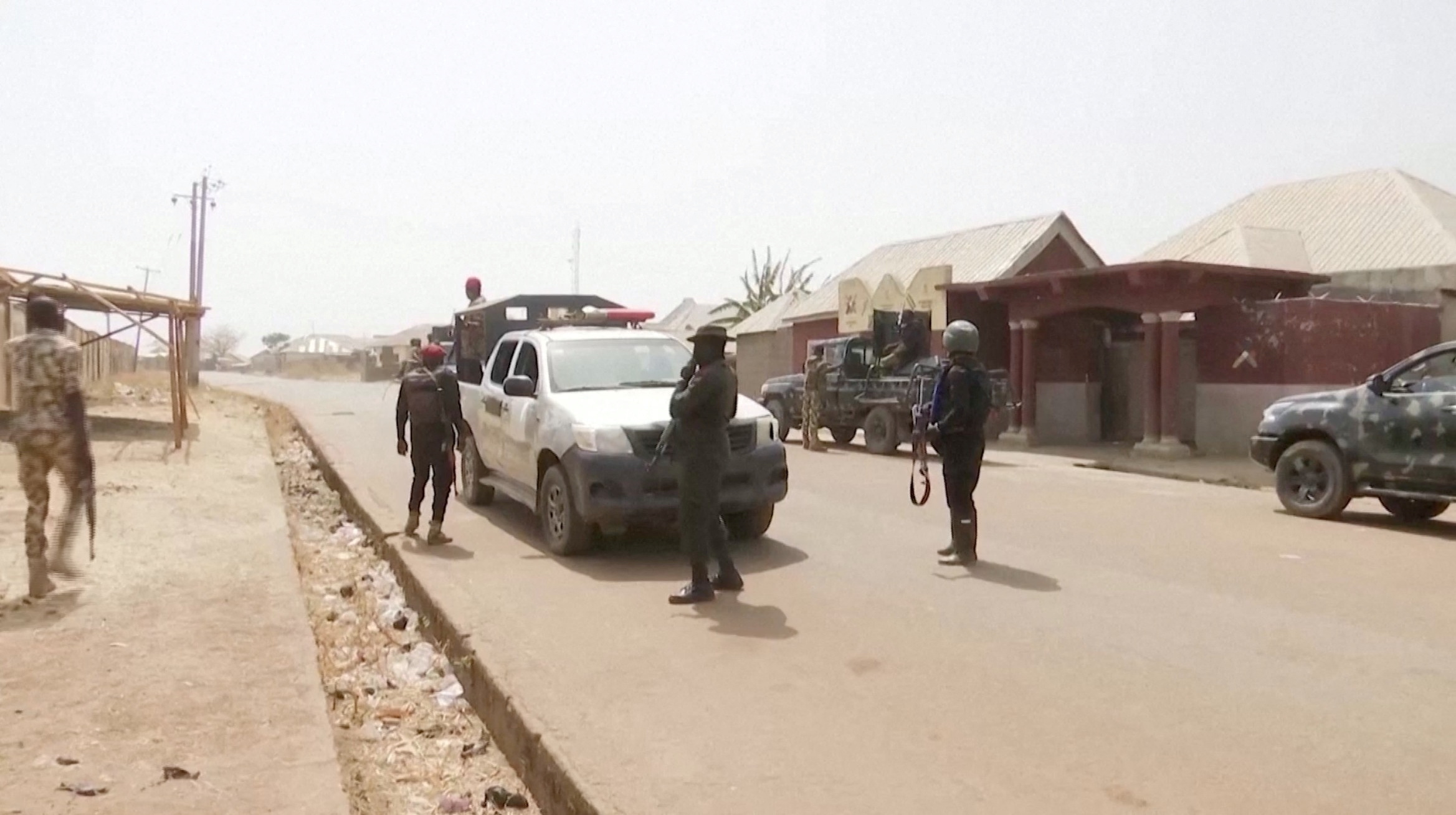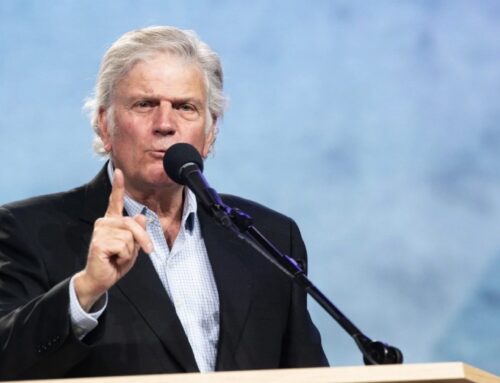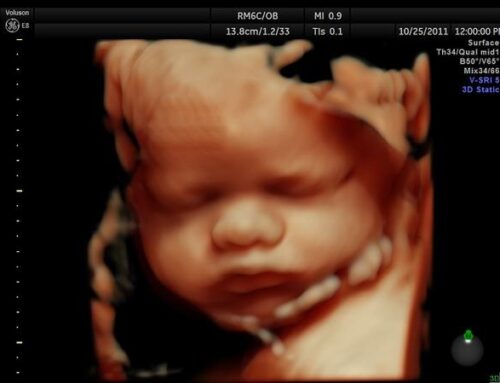Security personnel patrol the streets amid a surge in violence in Mangu, Plateau State, Nigeria, in this screengrab obtained from a video on Jan. 24, 2024. Reuters TV via Reuters
Trump Threatens Military Intervention in Nigeria: What to Know
The president threatened to cut off all aid to Nigeria and suggested that ground troops and air strikes may be on the table.
11/11/2025
Reprinted from The Epoch Times
In a series of strongly worded warnings over the past week, U.S. President Donald Trump has suggested that the U.S. government will consider military intervention to stop the “mass slaughter” of Christians at the hands of Islamic terrorists in Nigeria.
The president threatened to cut off all aid to Nigeria and suggested that ground troops and air strikes may be on the table. He also relisted Nigeria as a “Country of Particular Concern,” a formal designation that can lead to sanctions and other consequences.
Reports of Christians Persecuted
Trump, Cruz, and Moore point to reports by nongovernmental organizations claiming that more than 50,000 or even more than 100,000 Christians have been killed since 2009 and that 7,000 have been “martyred” so far this year. The reports also say that nearly 20,000 churches or religious institutions have been destroyed, with thousands kidnapped and millions displaced.
Nigerian officials deny that Christians are persecuted. They said they welcomed U.S. help fighting terrorist violence as long as it respects Nigerian sovereignty.
Nigeria Denies Christian Genocide
In a speech posted to social media on Nov. 5, Mohammed Idris, Nigeria’s minister of information, said Trump’s threats were based on misinformation.
Idris acknowledged that the country has faced “longstanding” and serious security challenges since the 2009 emergence of Islamist terror group Boko Haram and other “criminal elements” but said Tinubu’s administration has taken decisive action.
Since 2023, state security agencies have “neutralized” more than 13,500 terrorists, arrested more than 17,000 who are suspects now facing interrogation or prosecution, and rescued more than 9,800 kidnapping victims, he said.
“The menace of terrorism in Nigeria does not exclusively target any religious or ethnic group. As in many parts of the world, extremism is mindless, blind to religion, tribe, or class. It is a war against all peace-loving Nigerians and against the unity and progress of our great country,” Idris said.
Religious Violence, Growing Security Crisis
The U.S. Commission on Religious Freedom in 2024 reported “systemic, ongoing, and egregious” violations of religious freedom in Nigeria, noting that the government uses blasphemy laws to prosecute and imprison individuals of various faiths.
The Nigerian government, the report notes, “continues to tolerate egregious violence by non-state actors,” which impacts Christians and Muslims in several states across the country, targeting “both religious sites and individuals from religious minority communities.”
But in the years since, other perpetrators have entered the fray. These include the Islamic State West Africa Province and other Islamist splinter groups, as well as bandits, regional armed groups, and ethnically affiliated militias.
Nigeria’s 227 million people are about evenly split between Muslims and Christians. And in many ways, the country offers an example of integrated coexistence. The president is a Muslim, his wife a Christian pastor, and both faiths are represented throughout government.
Nigeria’s North is predominantly Muslim, with 12 northern states adopting Sharia law. But some severely impacted northern states are predominantly Christian.
In recent years, increasing attacks on Christian villages in the country’s fertile Middle Belt or North Central region have drawn attention to longstanding conflicts between farmers, who are largely Christian, and Fulani herdsmen, who are semi-nomadic and predominantly Muslim.
The Nigerian government characterizes this as a land-use dispute driven by the climate, resource scarcity, and population growth. However, international observers report an increase in attacks on Christians by militant Fulani factions.
What’s Next
Without an American-controlled base nearby, AFRICOM may face significant logistical hurdles in entering Nigeria to wipe out Islamic militants.
Last year, AFRICOM was ordered out of the neighboring country of Niger after a military junta seized power. Having abandoned its $110-million drone base there, where it helped train and support counterterrorism missions in the region, the United States would likely have to operate from friendly neighboring countries or move aircraft carriers into the Gulf of Guinea, on Nigeria’s southern border.







Leave A Comment
You must be logged in to post a comment.